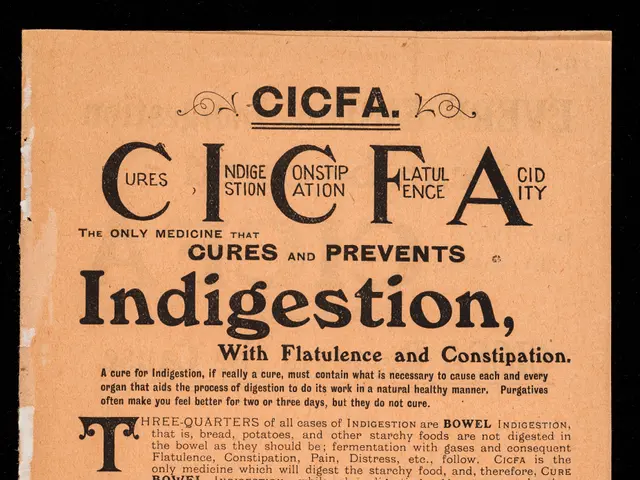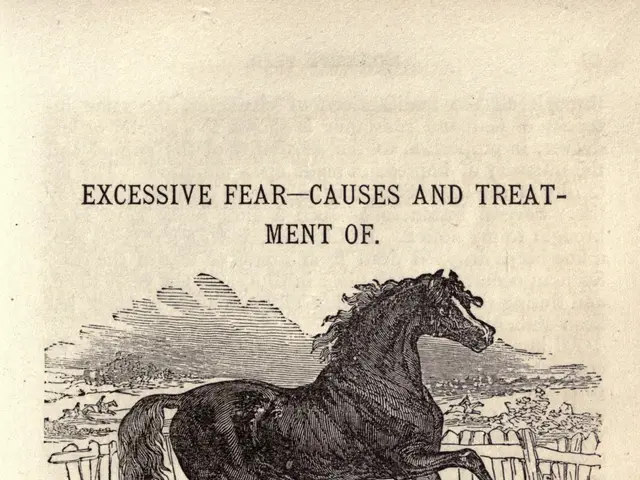Exploring the Modified Approach of Intermittent Fasting: Delving into Dialogue with Lauren Jane
In-Depth Interview: Addressing Women's Health Concerns and Intermittent Fasting
In his latest interview, we speak with Lauren Jane, a renowned naturopath and health expert, for part four of our ongoing series. This time, our discussion focuses on intermittent fasting and its implications, particularly for women.
Jane explains the premise of intermittent fasting (I.F), revealing its potential benefits for those with digestive issues, diabetes, insulin resistance, and menopausal weight gain. However, she highlights an important caveat: women are more likely to restrict calories too excessively during their eating windows, which can present issues for menstrual health.
Furthermore, Jane warns against intermittent fasting for individuals with a history of disordered eating, during pregnancy, while dealing with fertility issues, breastfeeding, or conception attempts, or for those with low thyroid function or chronic stress.
Jane sheds light on the health concerns that may arise for women who opt for intermittent fasting. She points out that inadequate caloric intake or the elimination of major food groups can impact monthly ovulation. She advises women to be aware of symptoms such as:
- Irregularities in menstrual cycles
- Hair loss
- Increased sensitivity to the cold
- Slower digestion leading to constipation
- Reduced post-workout recovery
- Diminished stress tolerance
- Reduction in libido
- Fatigue, weakness, or dizziness
The impact of intermittent fasting on hormonal balance and overall well-being in women is significant. Although it can help manage certain hormonal conditions such as Polycystic Ovarian Syndrome, it can also exacerbate complications due to women's sensitivity to calorie restriction. Jane explains that reduced caloric intake can result in skipped ovulation, lower progesterone production, and subsequent hormonal imbalances that affect menstruation, mood, and fertility, among other aspects.
As an alternative, Jane recommends an intuitive approach to eating, encouraging women to listen to their bodies and their hunger and satiety signals. She emphasizes that women should maintain a focus on quality foods, proper sleep, enjoyable movement, stress management, and fostering self-connection.
For those seeking health improvements without relying on fasting, Jane offers advice to revert to the basics: consume quality foods, ensure quality sleep, engage in movement that is pleasant, practice stress management techniques, and nurture connections with oneself and others.
With this interview, readers can better understand the intricacies of intermittent fasting and its potential impact on women's health. Always consult a healthcare professional before making any major dietary changes.
References:
- Elle Woods. (2021). The Surprising Health Risks of Intermittent Fasting. Harper’s Bazaar. https://www.harpersbazaar.com/wellness/food-nutrition/intermittent-fasting-for-women-health-benefits-risks
- Natalia Hoyos. (2020). Intermittent Fasting for Women: What You Need to Know. Healthline. https://www.healthline.com/nutrition/intermittent-fasting-for-women
- Allison Stowell. (2020). Time-Restricted Eating for Weight Loss: What You Need to Know. Everyday Health. https://www.everydayhealth.com/diet-nutrition/time-restricted-eating/
- Rachel Gaffney. (2020). Why Fasting Might Be Bad For Your Hormones. Women’s Health. https://www.womenshealthmag.com/life/a37524600/why-fasting-is-bad-for-your-hormones/
- Jillian Michaels. (2021). The Ultimate Guide to Intermittent Fasting for Women. Women's Health. https://www.womenshealthmag.com/weight-loss/a35734333/intermittent-fasting-for-women/
- Lauren Jane, during the interview, highlighted that intermittent fasting can have potential implications for women's health, particularly when they restrict calories excessively, which may impact menstrual health.
- In addition to discussing intermittent fasting, Jane suggested an alternative approach for women seeking health improvements, focusing on quality foods, proper sleep, enjoyable movement, stress management, and fostering self-connection.
- Jane's recommendations on health and wellness extend beyond intermittent fasting, emphasizing the importance of nutrition, fitness-and-exercise, mental-health, and womens-health, advocating for a more intuitive approach to eating.
- The health concerns arising from inadequate caloric intake or the elimination of major food groups during intermittent fasting can lead to a series of symptoms, such as irregular menstrual cycles, hair loss, slower digestion, reduced post-workout recovery, diminished stress tolerance, and reduction in libido.








